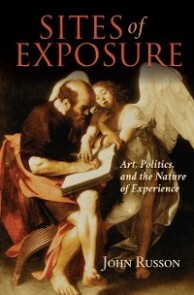John Russon draws from a broad range of art and literature to show how philosophy speaks to the most basic and important questions in our everyday lives. In Sites of Exposure, Russon grapples with how personal experiences such as growing up and confronting death combine with broader issues such as political oppression, economic exploitation, and the destruction of the natural environment to make life meaningful. His is cutting-edge philosophical work, illuminated by original and rigorous thinking that relies on cross-cultural communication and engagement with the richness of human cultural history. These probing interpretations of the nature of phenomenology, the philosophy of art, history, and politics, are appropriate for students and scholars of philosophy at all levels.

